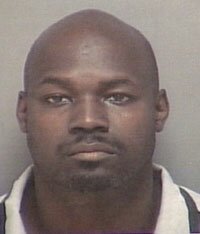Sealed order: DNA confirms part of serial rape case

Nathan Antonio "Toni" Washington has his first day in court August 23.
FILE PHOTO
Police confirm that DNA from serial-rape suspect Nathan Antonio Washington matches genetic material from two local attacks, but authorities remain mum on developments in five other cases they've long said were committed by the same man.
A Charlottesville grand jury met August 20. Commonwealth's Attorney Dave Chapman refuses to comment about whether Washington was indicted on other charges. "I don't comment on matters that are going before a grand jury," he says.
Virginia's grand juries are secret panels that decide whether to indict without the presence of the accused person or any chance for cross examination or written records.
Washington is scheduled to appear in Charlottesville and Albemarle courts August 23 on charges stemming from a November 2002 rape in the Willoughby subdivision, and an August 2004 attack on Webland Drive off Hydraulic Road.
The arrest warrant obtained by Albemarle police that led to Washington's August 13 arrest is sealed, as is the judge's order sealing the warrant, which is usually a public record.
Albemarle Commonwealth's Attorney Jim Camblos acknowledges requesting that the search warrant be sealed– even though Washington has been in custody for over a week.
"Now that he's been arrested and served with five warrants, obviously the situation has changed and we will be dealing with it in the near future," says Camblos.
"That's highly unusual," says legal expert David Heilberg. "I don't know why the order would be sealed. You can use initials to maintain confidentiality."
While it's unusual, Heilberg says such secrecy is not unprecedented and could stem from an ongoing police investigation into the other cases in which Washington is a suspect– five other sexual assaults over the past decade that started with a 1997 attack of a woman going into her hotel room in Waynesboro.
Another reason for secrecy: "In a case with intense public interest, that could prejudice a jury," says Heilberg.
The clampdown on information in a case in which police have long sought publicity to help find the serial rapist leaves several questions unanswered.
How did they home in on Washington, 40, a married father of four, and a meat cutter at Harris Teeter who delivered papers for the Daily Progress? Will the $55,000 reward for information leading to the serial rapist's arrest and conviction be paid? Have other victims come forward, and has Washington been tied to other attacks that did not have DNA evidence?
And perhaps the biggest question: how did a man who grew up and lived in the community and was known to take his kids to the pool and playground come to be charged in a string of Central Virginia's most heinous cases?
Clinical psychologist Jeffrey Fracher describes three varieties of rapist. First is the date or acquaintance rapist. "They don't usually see themselves as rapists, even though they use force" says Fracher.
Then there are the rapes that take place in abusive relationships.
Finally is the serial rape by strangers. "They tend to be compulsive, very fixated on sexual fantasy, dominating, controlling, and hurting," says Fracher. "Most typically we see an escalating amount of the violence they need until they tend to get caught."
Fracher says that of the couple of hundred rapists he sees a year, only two or three are serial rapists turned on by power and domination. "The good news is, they're really rare," says Fracher. "The bad news is, they're dangerous."
Stressing that he is not speaking about Washington, Fracher says that in general, serial rapists start having fantasies around adolescence. They could have a history of being abused either physically, sexually, or emotionally, and may have come from a "violent family parenting style." Cruelty to animals could be another indicator.
The Hook's attempts to positively identify and contact Washington's family members have not been successful.
"In the worst form, you've got a Ted Bundy," says Fracher about those who become serial killers because of "lust-murder"– a need for violence that turns into a need to kill.
"Most of these guys have enough conscience and control," notes Fracher, "that they don't get to that point."
#
2 comments
Until a victim (or victims) positively identifies this guy as the culprit, I'm going to keep in mind that police sometimes lie, and I know very little about DNA analysis, since I have never studied it in any great depth.
John, police sometimes lie?
They use to "sometimes lie". But it's pretty damn often nowadays.